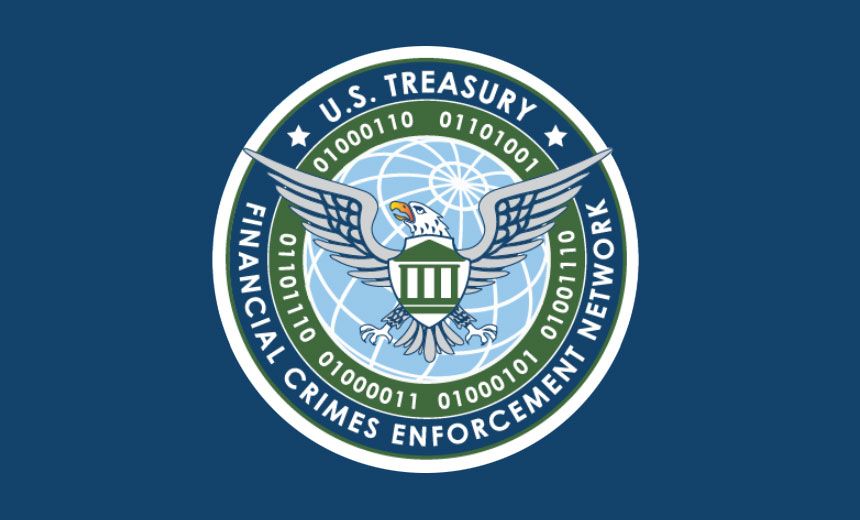FinCEN Seeks to Impose Strict Surveillance Requirements onto Broadly Defined Class of 'Bitcoin Mixers'
The agency proposed designating 'crypto mixing' as an area of “primary money laundering concern" in order to impose certain recordkeeping and reporting requirements on involved transactions. The public will have 90 days to comment.

- “Today’s action underscores Treasury’s commitment to combatting the exploitation of Convertible Virtual Currency [CVC] mixing by a broad range of illicit actors, including state-affiliated cyber actors, cyber criminals, and terrorist groups,” said Deputy Secretary of the Treasury Wally Adeyemo.
“This is FinCEN’s first ever use of the Section 311 authority to target a class of transactions of primary money laundering concern, and, just as with our efforts in the traditional financial system, Treasury will work to identify and root out the illicit use and abuse of the CVC ecosystem,” said FinCEN Director Andrea Gacki.
FinCEN emphasizes that CVC mixing does not fully rely on the use of CVC mixers and include the following methods:
- Pooling or aggregating CVC from multiple persons, wallets, addresses, or accounts. "This method involves combining CVC from two or more persons into a single wallet or smart contract and, by pooling or aggregating that CVC, obfuscating the identity of both parties to the transaction by decreasing the probability of determining both intended persons for each unique transaction."
- Splitting CVC for transmittal and transmitting the CVC through a series of independent transactions. "This method involves splitting a single transaction from sender to receiver into multiple, smaller transactions, in a manner similar to structuring, to make transactions blend in with other, unrelated transactions on the blockchain occurring at the same time so as to not stand out, thereby decreasing the probability of determining both intended persons for each unique transaction."
- Using programmatic or algorithmic code to coordinate, manage, or manipulate the structure of a transaction. "This method involves the use of software that coordinates two or more persons’ transactions together in order to obfuscate the individual unique transactions by providing multiple potential outputs from a coordinated input, decreasing the probability of determining both intended persons for each unique transaction."
- Creating and using single-use wallets, addresses, or accounts and sending CVC through these wallets, addresses, or accounts in a series of transactions. "This method involves the use of single-use wallets, addresses, or accounts—colloquially known as a “peel chain”—in a series of unnatural transactions that have the purpose or effect of obfuscating the source and destination of funds by volumetrically increasing the number of involved transactions, thereby decreasing the probability of determining both intended persons for each unique transaction."
- Exchanging between types of CVC, or other digital assets. "This method involves exchanges between two or more types of CVC or other digital assets—colloquially referred to as “chain hopping”—to facilitate transaction obfuscation by converting one CVC into a different CVC at least once before moving the funds to another service or 10 platform thereby decreasing the probability of determining both intended persons for each unique transaction."
- Facilitating user-initiated delays in transactional activity. "This method involves the use of software, programs, or other technology that programmatically carry out predetermined timed-delay of transactions by delaying the output of a transaction in order to make that transaction appear to be unrelated to transactional input, thereby decreasing the probability of determining both intended persons for each unique transaction."
- "The lack of transparency surrounding international CVC mixing activity is an acute money laundering and national security risk, and increasing transparency in connection with this activity is a key component to denying illicit actors access to the U.S. and global financial systems," was stated in the press release.
- "The global nature of the problem is further demonstrated by the fact that no CVC mixers are currently registered with FinCEN. CVC mixers are required to register with FinCEN if they do business as money transmitters wholly or in substantial part within the United States."
"FinCEN recognizes that there are legitimate reasons why responsible actors might want to conduct financial transactions in a secure and private manner given the amount of information available on public blockchains. FinCEN also recognizes that, in addition to illicit purposes, CVC mixing may be used for legitimate purposes, such as privacy enhancement for those who live under repressive regimes or wish to conduct licit transactions anonymously. Still, CVC mixing presents an acute money laundering risk because it shields information from responsible third parties, such as financial institutions and law enforcement," was stated in the document.
- "If the designation is made, the Treasury Department can impose restrictions on U.S. financial firms' dealings with the mixers, which "range from requiring additional due diligence and special attention concerning particular account transactions among U.S. financial institutions to prohibiting the opening or maintenance of any correspondent or payable-through accounts," reported CoinDesk.
- "The FinCEN issued a notice of proposed rulemaking on Thursday, which will be open to public comment for 90 days."
CoinDesk Article / Archive
Press Release / Archive
Full Proposal / Archive




